If you've ever faced challenges with a landlord, you know how frustrating it can be to communicate your concerns effectively. It's essential to express your grievances in a clear and formal manner to ensure they are taken seriously. A well-structured complaint letter not only highlights the issues but also serves as a documented record of your communication. Curious about how to draft the perfect letter to address your landlord? Read on to discover our comprehensive template!
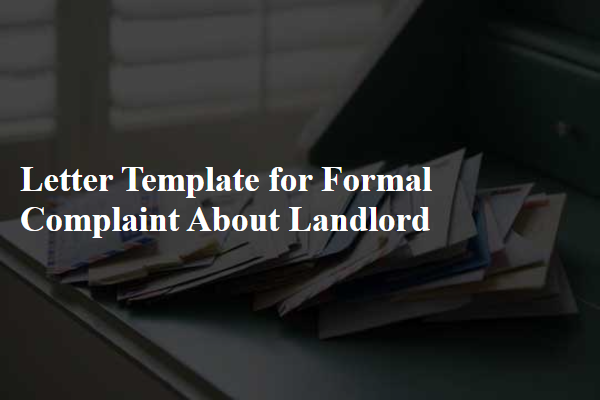
Clear Subject Line
Submitting a formal complaint regarding landlord issues demands clarity and specificity. Unresolved maintenance concerns, such as plumbing leaks or heating failures, can significantly impact tenant safety and comfort. By citing regulatory standards, like those established in the Landlord-Tenant Act of various states, tenants can emphasize their rights. Failing to address rodent infestations or inadequate security measures can reflect negligence on the landlord's part. Documenting communications, including specific dates and correspondence, reinforces the grievance. A formal request for prompt resolution often concludes the complaint, highlighting the expectation for appropriate action within a specified timeframe.
Specific Details of Complaint
The persistent plumbing issues in the apartment, located at 123 Maple Avenue, have caused significant inconvenience and distress for the tenants. For instance, a leaking pipe beneath the kitchen sink has resulted in water damage, estimated at a cost of $500 for repairs. Additionally, the absence of hot water for over a week during October 2023 has created uncomfortable living conditions, particularly as temperatures dropped to 10 degrees Celsius. Attempts to communicate these concerns to the landlord, Mr. Smith, have remained unanswered for more than 14 days, exacerbating the frustration felt by the residents. Urgent remediation is necessary to restore a safe and habitable environment in accordance with the lease agreement and local housing regulations.
Relevant Laws or Regulations
Landlord-tenant relationships are governed by various laws and regulations, depending on the jurisdiction. In the United States, the Fair Housing Act prohibits discrimination based on race, color, national origin, sex, disability, and familial status. Additionally, many states have enacted their own landlord-tenant laws, which outline the rights and responsibilities of both parties. For instance, states like California have the California Civil Code Section 1941, which mandates landlords to maintain a habitable living environment. Local health and safety codes may also apply, regulating issues like pest control, heating, and plumbing. Rent control ordinances may exist in specific cities, limiting rent increases and providing additional tenant protections. In cases of unaddressed maintenance issues, tenants can often assert their rights under these laws, potentially involving formal complaints to housing authorities or seeking legal remedies.
Desired Resolution
Inadequate maintenance by landlords can lead to significant repercussions for tenants, particularly regarding health and safety. Numerous complaints may arise concerning issues like plumbing leaks, heating failures, and pest infestations. For example, a burst pipe can cause extensive water damage rated in the thousands of dollars, alongside potential mold growth, posing serious health risks. Timely resolutions are crucial; tenants often seek urgent repairs or financial compensation for inconveniences. Adequate communication channels, such as written notices or formal letters, are essential in establishing clear expectations and documenting unresolved issues to ensure accountability and proper redress for negligence.
Professional Tone
A tenant's relationship with a landlord can often be challenging, particularly when issues arise. Problems like maintenance delays in apartment complexes, such as leaking pipes or malfunctioning heating systems, can lead to discomfort and frustration for residents. Regulations in many regions, such as the Fair Housing Act, provide tenants with rights regarding timely repairs and adequate living conditions. For example, in New York City, landlords are required to attend to urgent repairs within 24 hours. Additionally, persistent communication gaps can escalate disputes, emphasizing the importance of clear and documented correspondence between tenants and property owners. Effective resolution of such matters may require escalating the issue to local housing authorities or seeking legal advice, especially if the landlord remains unresponsive to formal complaints.
Letter Template For Formal Complaint About Landlord Samples
Letter template of formal complaint regarding landlord's maintenance negligence
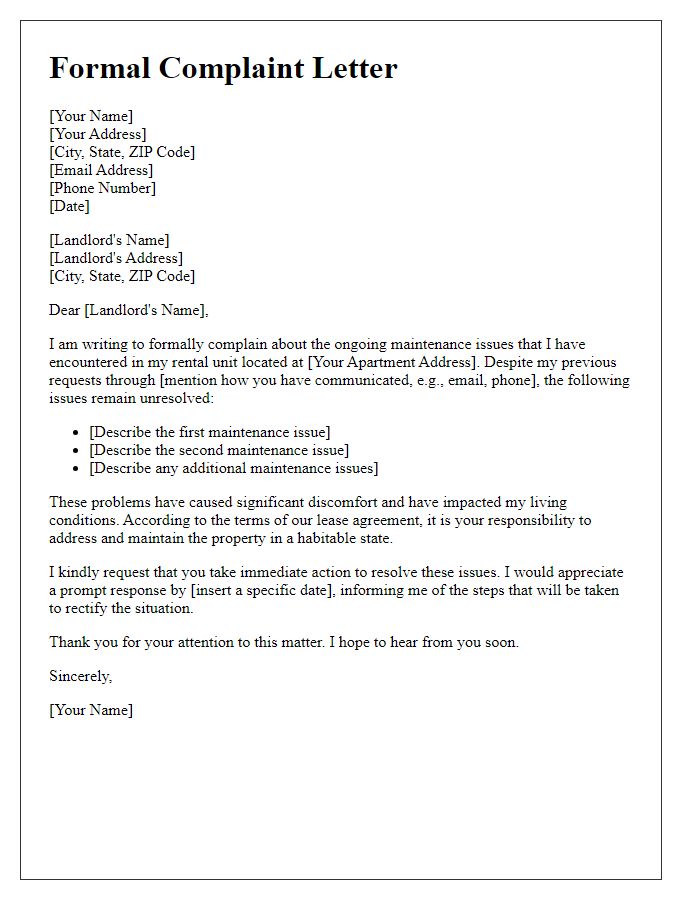
Letter template of formal complaint about unresponsive landlord communication
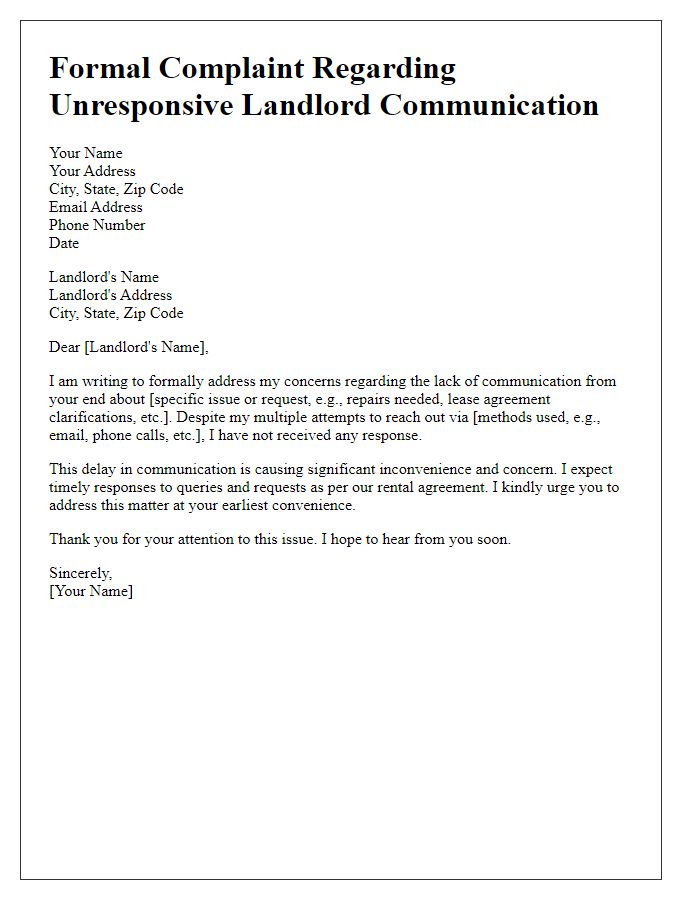
Letter template of formal complaint concerning landlord's lease violations
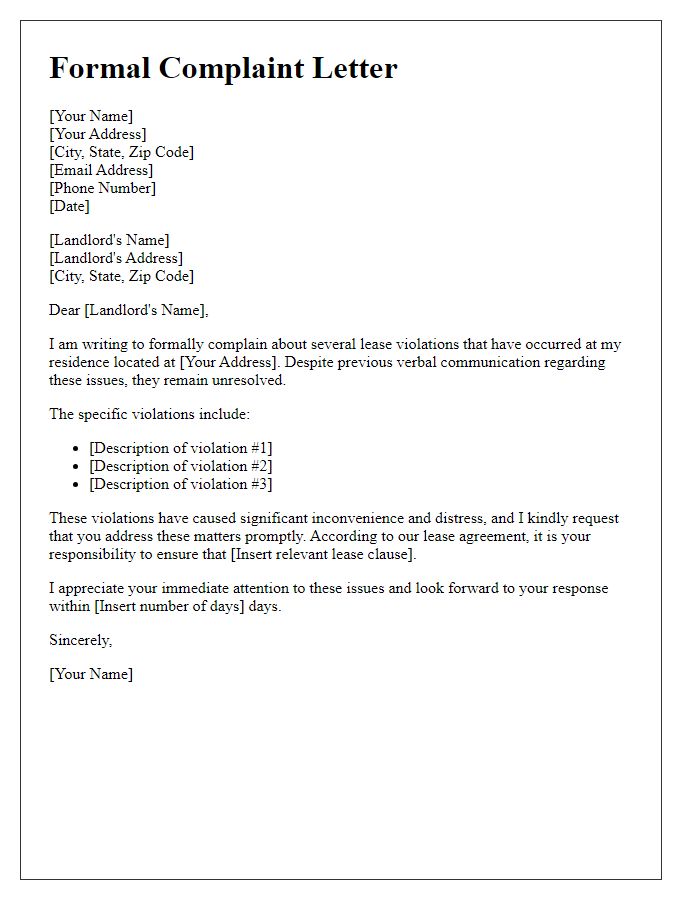
Letter template of formal complaint regarding unsafe living conditions by landlord
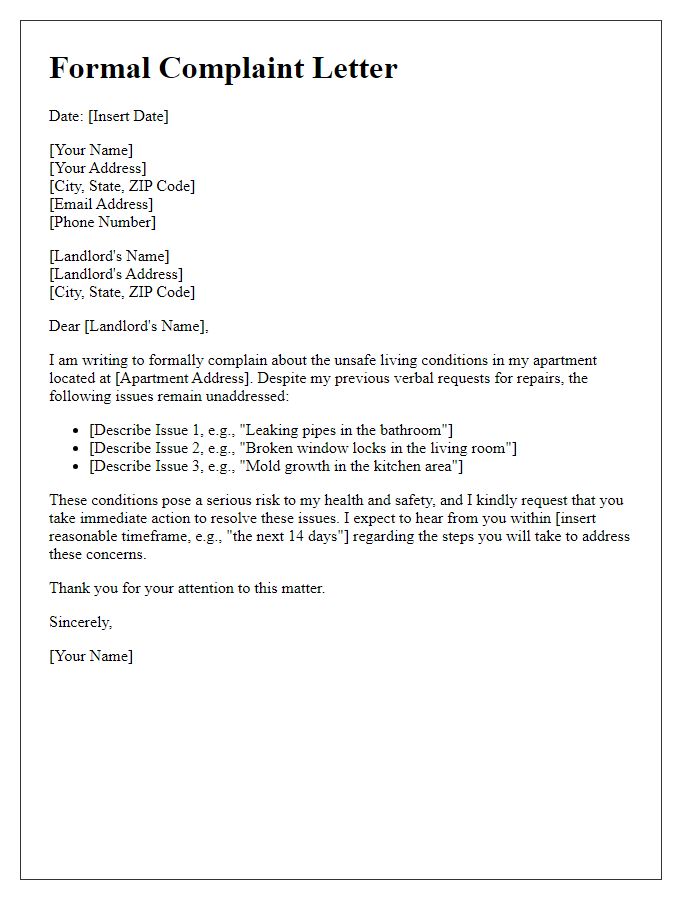
Letter template of formal complaint about unauthorized entry by landlord
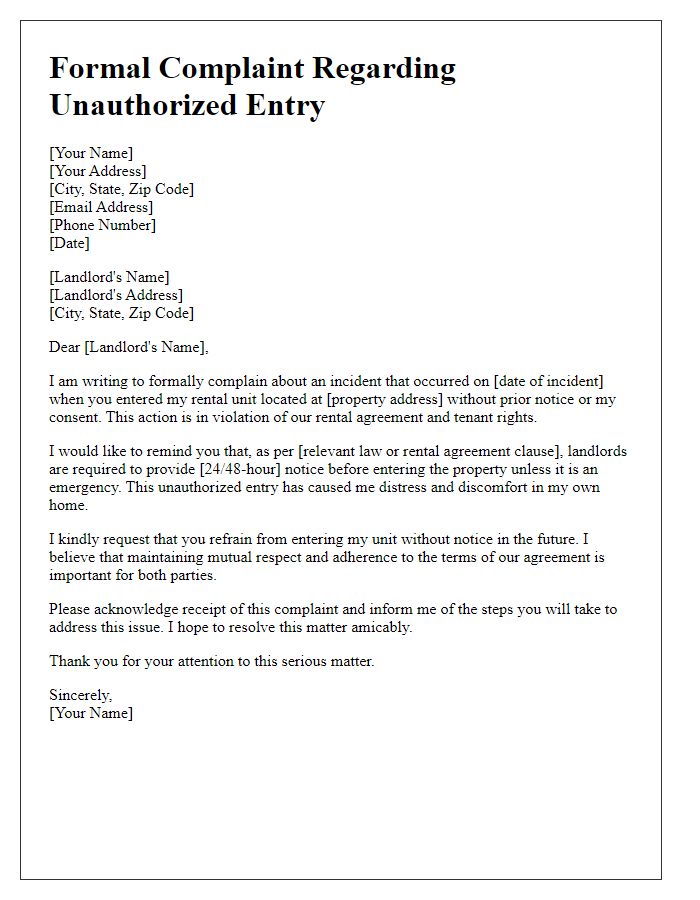
Letter template of formal complaint regarding discrimination by landlord
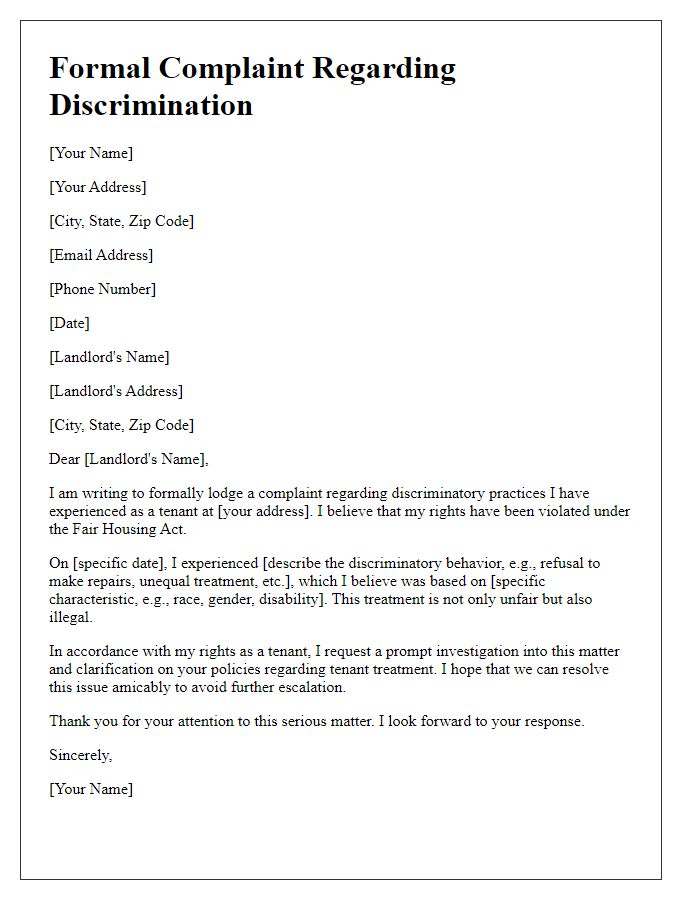
Letter template of formal complaint about excessive rent increases by landlord
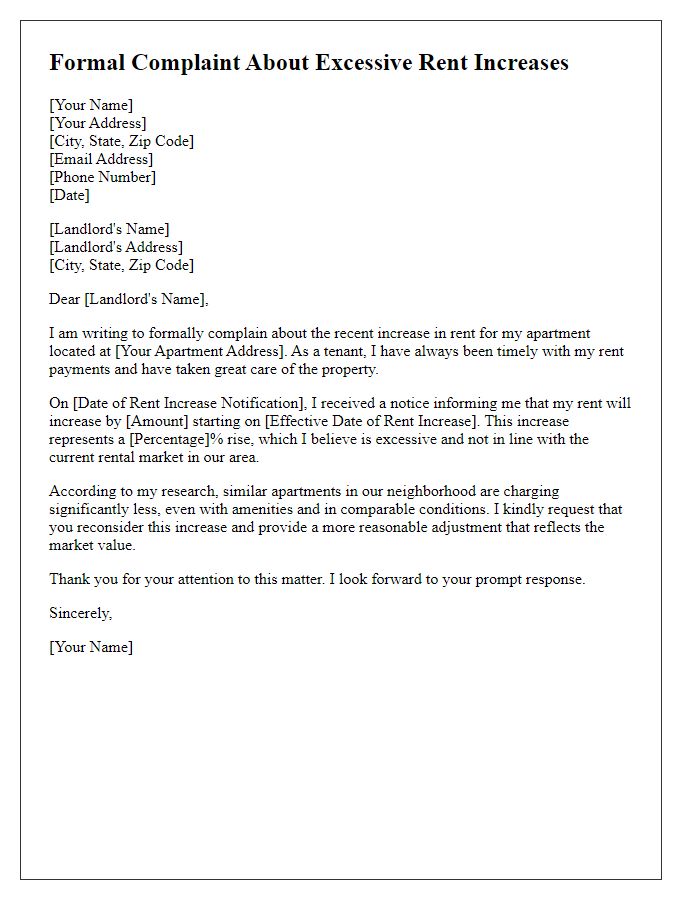
Letter template of formal complaint concerning failure to return security deposit by landlord
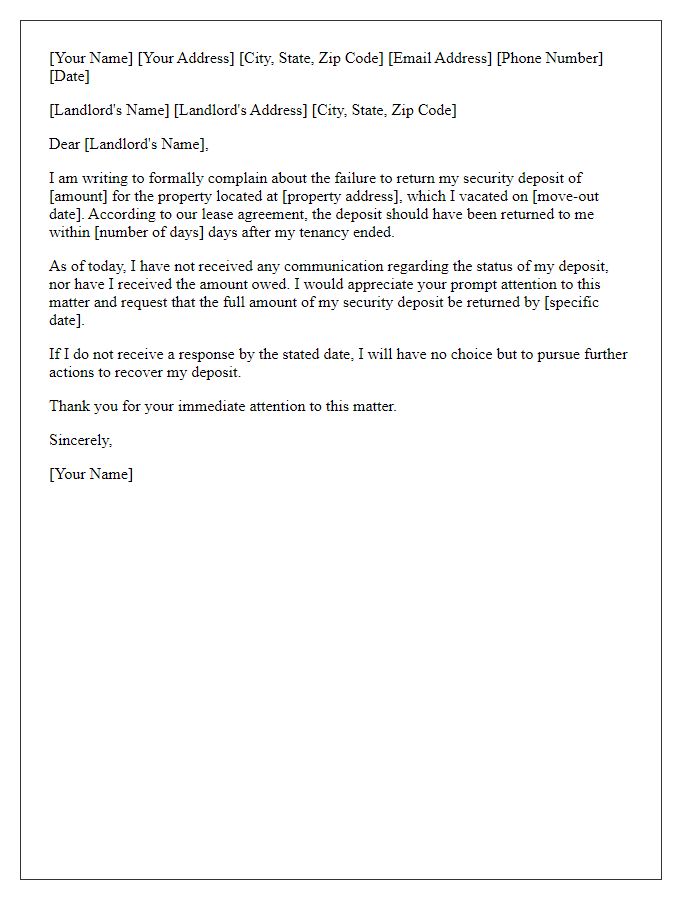
Letter template of formal complaint regarding pest infestation managed poorly by landlord
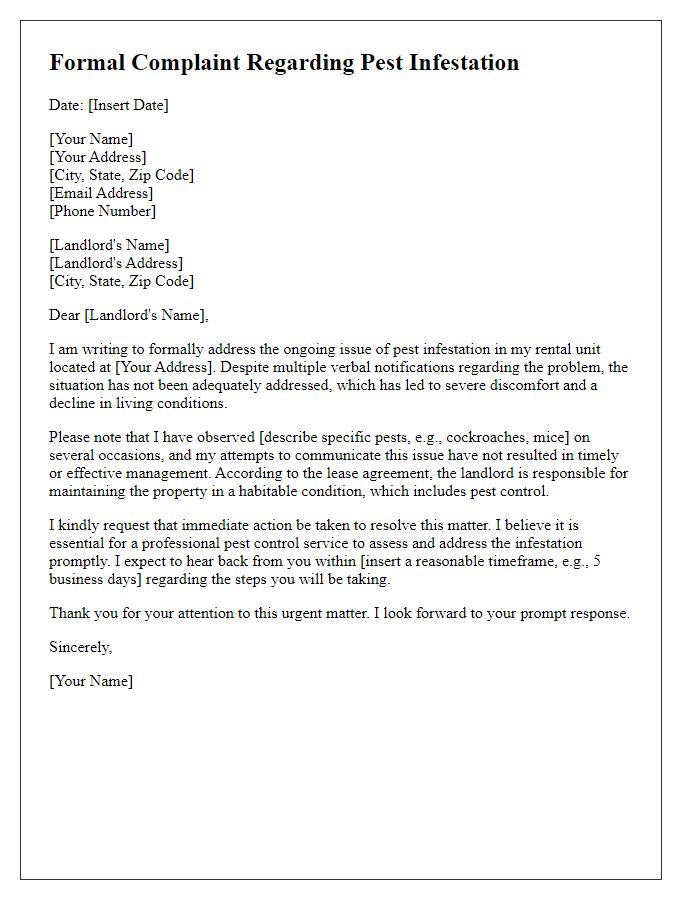

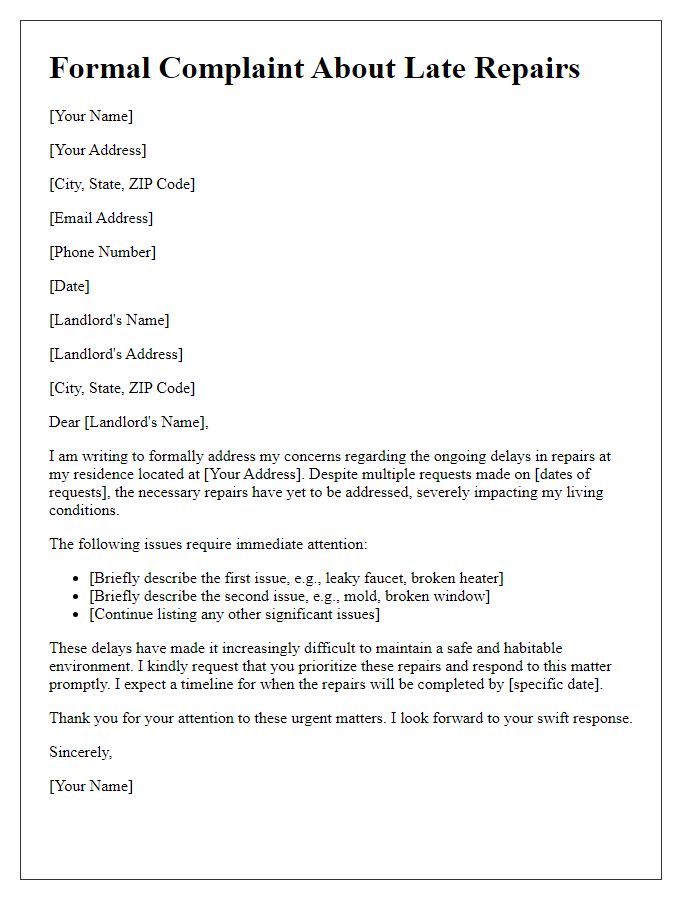

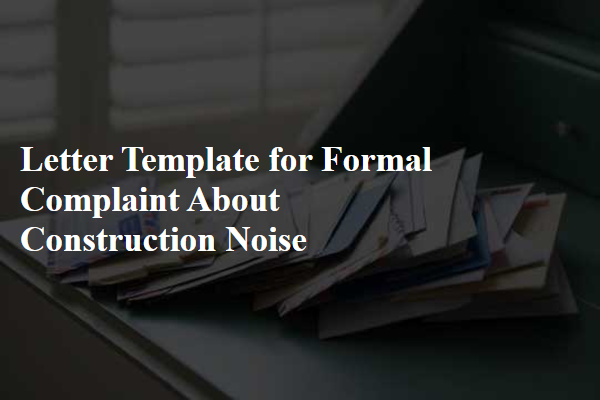
Comments